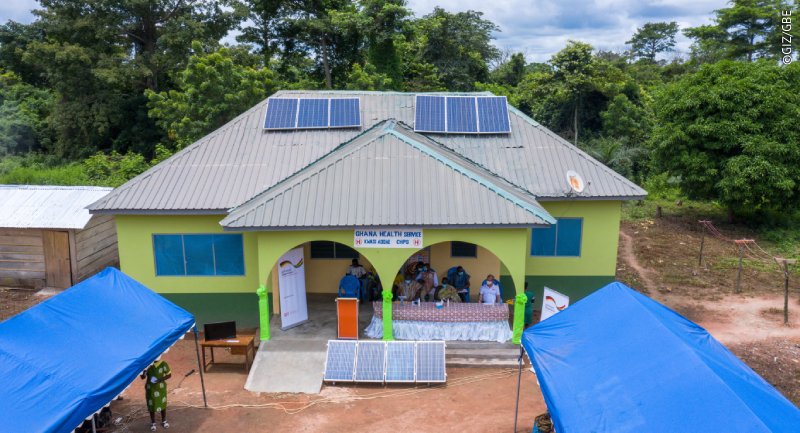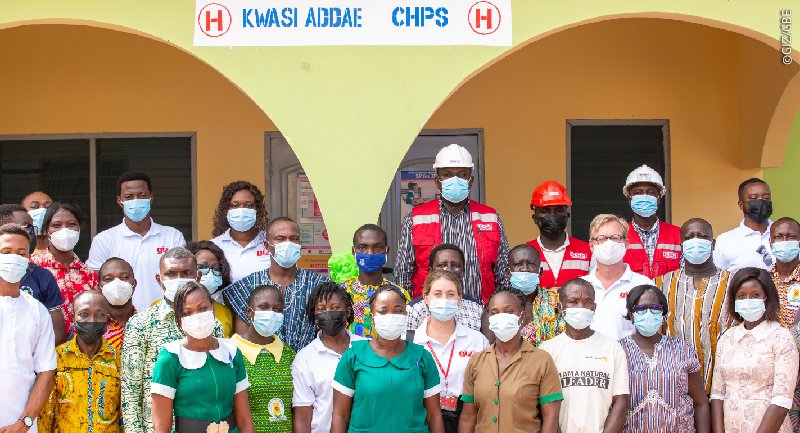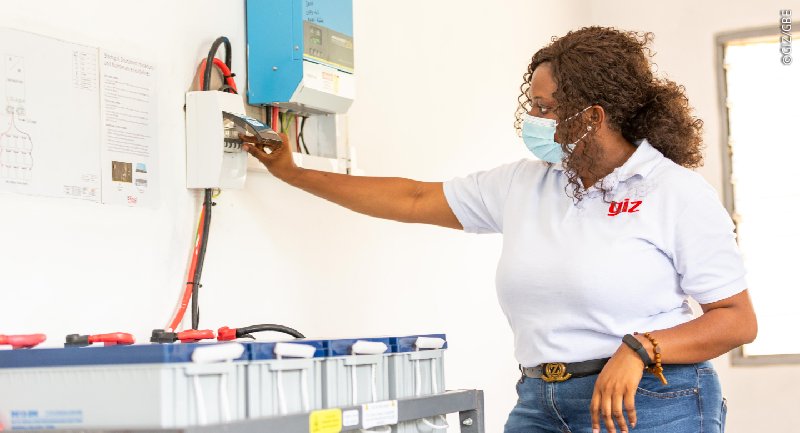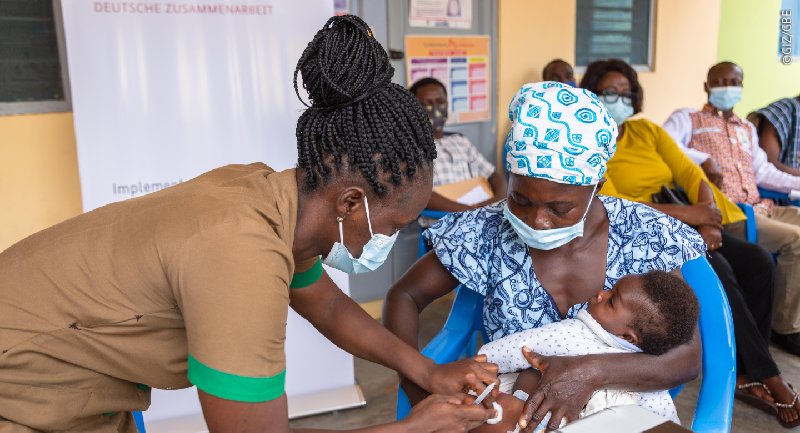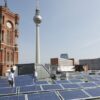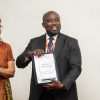Impact of solar energy in the health care
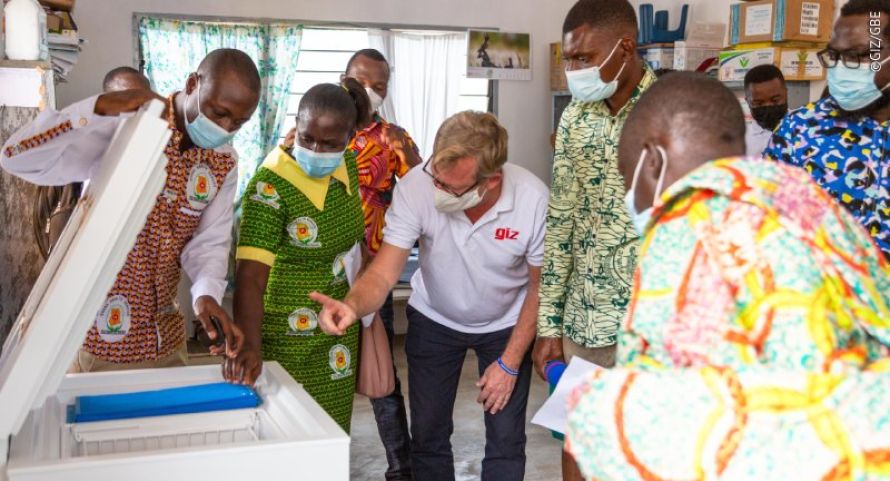
Hundreds of unelectrified communities are located near the Volta Reservoir in Ghana. Without electricity, the health centres there are mostly deserted. Green People’s Energy Ghana has now installed ten solar power systems and refrigerators for vaccines in these rural care facilities. By the end of March 2022, GBE aims to power another 21 health centres.
“Before the solar system was installed, we used to deliver in the dark. There were cases where we had to transfer emergency deliveries to other facilities because of the lack of light,” said Michael Dzahene, midwife, at the inauguration of the solar plant at his health centre in Kwasi Addae, “and thus inevitably endangered the health of both mother and child.” That is now history. Since he and the staff can rely on their own solar electricity supply, the number of deliveries at Kwasi Addae has increased from 15 to 35.
Michael Dzahene explained how much the health centre in Kwasi Addae benefits from its own electricity supply at an event on site, where representatives of the Ghanaian health service, the local authorities and GIZ’s political partners came to Kwasi Addae to learn first-hand.
The electricity from the installed solar system is used to light rooms, cool vaccines, operate medical equipment such as ultrasound machines, but also to keep fans and television sets running. Furthermore, the patients and staff can charge their mobile phones, which significantly improves emergency communication.
“I can proudly report that we are now able to stock vaccines for our routine immunisations and Covid-19 vaccinations, as well as stock ice packs to help relieve pain, swelling and inflammation from injuries,” said District Health Director Mr Richard Essien.
The Ghana Health Service aims to use the vaccine refrigerators to close the gap in the cold chain in the delivery of vaccines. During the visit, there was a demonstration by the Children’s Aid Services where some children were vaccinated. It is envisaged that the first Covid-19 vaccines will soon arrive in Kwasi Addae as distribution to the districts has already started.
“The example from Kwasi Addae shows how much we can improve basic medical care in our rural health centres with the help of a stable energy supply,” said Dr Rose Mensah-Kutin from the chairperson of ABANTU, an association that has been working for women’s rights in rural Ghana for 20 years. She thanked the German government for its support and, in conversation with the community representatives, stressed the importance of maintaining the solar power system to ensure its long-term benefits.
Unusual additional benefit
Light also improves the safety of the staff. Employees of the health centres reported that they can now work at night without fear of snake or scorpion bites. Meanwhile, local residents also use the illuminated health centre. “My children play or do their schoolwork in the light of the building,” said Kate Korang, a mother of five.
